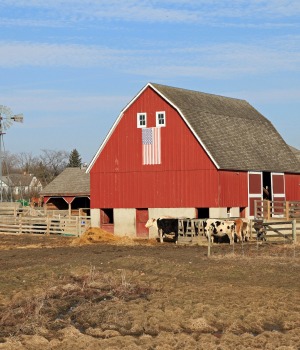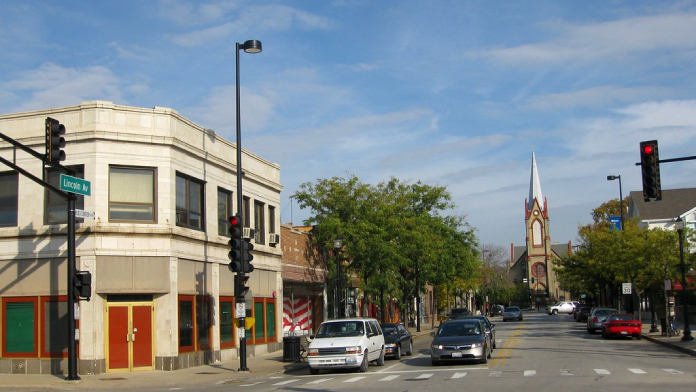Alcohol and Drug Use Statistics in Skokie, IL
When compiling drug and alcohol use statistics, Cook County removes Chicago and the immediate metropolitan area and releases data for suburban Cook County, which includes Skokie. Here is a breakdown of those numbers:2,3
Across suburban Cook County, there were 487 opioid-involved overdoses in 2020.
60% of them were white.
73% were men.
83% involved fentanyl.
50.8% were between the ages of 35 and 44.
- Between 2013 and 2017, Skokie had 23 drug overdose deaths, for a rate of 8 per 100,000 people.
Levels of Care for Rehabs in Illinois
For many Illinois residents, addiction treatment is a process of moving through multiple levels of treatment, from most to least intensive. For others, only the least restrictive levels are required.
Detox
Detox is the process of safely clearing your system of all drugs and alcohol. It occurs in a supervised setting to manage withdrawal symptoms. This process is often necessary before Illinois residents can enter a formal treatment program.
Residential or Inpatient
Residential or inpatient treatment is the most intensive treatment setting, involving 24/7 care. Medication, individual and family therapy, and recreational therapy are common forms of treatment at this level.
Partial Hospitalization Programs (PHPs)
In a PHP, participants receive much the same services as an inpatient program, but they return home during non-treatment times.
Intensive Outpatient Programs (IOPs)
IOPs are a step down from PHPs. These programs provide several hours of treatment over several days per week. Treatment usually includes individual and group therapy.
Standard Outpatient
Standard outpatient programs are the least intensive level of treatment. They require only two or three hours of care per week, usually at an outpatient clinic or therapist’s office. This option is appropriate for those with a strong support system who are highly motivated.
Aftercare
Also called relapse prevention, aftercare is focused on providing ongoing support for continued sobriety once a treatment program is complete. Aftercare can include 12-step meetings, transitional housing, therapy, and other supports.
How to Pay for Addiction Treatment in Skokie, Illinois
Private Insurance
By law, all insurance companies must provide at least some coverage for substance abuse treatment. However, each plan differs, so Illinois residents must contact their provider to discover precisely what is covered by their plan. Deductibles and copays may apply.
Illinois Medicaid
Illinois Medicaid is a government program that provides health insurance for low-income individuals and families. To be eligible, Illinois residents must be a U.S. national, citizen, permanent resident, or legal alien, in need of health care/insurance assistance, and characterized as low income. They must also be either pregnant, responsible for a child 18 years or younger, blind, have a disability or family member with a disability, or be 65 years or older.
Illinois Medicare
Medicare is a federal health insurance program that provides coverage for Illinois residents aged 65 and older, as well as individuals with certain disabilities. Some forms of addiction treatment are covered under Medicare Part A, while other services are covered under Part B. Not all rehab facilities accept Medicare as a form of payment, so it’s important to confirm Medicare acceptance before starting a program.
TRICARE in Illinois
TRICARE in Illinois provides health insurance coverage for U.S. military personnel, veterans, and their families. This includes substance use disorder treatment services; however, plans differ in their specific coverage.
Sliding Scale Rehabs
State-funded rehab centers use government funds to help pay for treatment for Illinois residents who are otherwise unable to afford it due to lack of income or lack of insurance coverage. To get into a state-funded rehab, residents can contact the Illinois Health and Human Services Department for assistance.
IHS-Funded Drug Rehabs
The Indian Health Service (IHS) is a federally funded program that provides health coverage for indigenous people. Under this program, Native Americans and Native Alaskans who need SUD treatment can receive low-cost or free services, even if they have other insurance coverage.
Traveling to and Within Skokie, IL
 If you live in Chicago, choosing to go to a Skokie drug rehab or alcohol rehab can provide the distance you need to help in your recovery. Here are some helpful tips about traveling in and around Skokie and what to do while you are staying in the village.
If you live in Chicago, choosing to go to a Skokie drug rehab or alcohol rehab can provide the distance you need to help in your recovery. Here are some helpful tips about traveling in and around Skokie and what to do while you are staying in the village.
- Skokie is close to major interstates, with I-94 crossing the town’s western edge.
- There are several bus lines available to help you get around town provided by the Chicago Transit Authority (CTA) and Pace. The CTA’s Skokie Swift rail line is another option for public transportation.
- You can easily travel between Skokie and downtown Chicago on the city’s elevated train’s Yellow Line. The Yellow Line ends at the Dempster Street station in Skokie and there is another station serving downtown Skokie.
- Skokie is just 12 miles east of Chicago’s O’Hare International Airport.
- Get some shopping done at Westfield Old Orchard, a retail center located in Skokie, which is one of the largest in the state.
- Nature enthusiasts will enjoy the Valley Line Trail. This multi-use trail connects the northwest side of Chicago to Skokie.
- The Skokie Northshore Sculpture Park features more than 70 works of art.
- For some cultural entertainment, head to the North Shore Center for the Performing Arts, home of the Skokie Valley Symphony Orchestra.
- The Illinois Holocaust Museum and Education Center is located in Skokie.
- Along I-94 in Skokie, there are several national chain hotels available.
Illinois Drug and Alcohol Laws
Illinois policy makers have established the following laws regarding substances:1,2,3,4
Drug Possession: In Illinois, possession of drugs (except cannabis) is a felony in all cases. Felony charges can lead to jail time and a lifelong felony record.
Good Samaritan Law: The Emergency Medical Services Access Law of 2012 is the Good Samaritan Law in Illinois. This law is designed to encourage people to seek emergency medical assistance when someone is overdosing. If an Illinois resident calls 911 or brings someone to an emergency room for an overdose, both the victim who is overdosing and the person seeking help are protected from being prosecuted for felony possession of small amounts of drugs.
Pretrial Fairness Act: Effective Jan 1, 2023, this law gives police officers who catch people with small amounts of drugs discretion to release them with a citation that orders them to appear in court within three weeks. This is a change from the previous law which put that person immediately in jail for a few days until they were brought before a judge.
DUI Laws: “Driving Under the Influence” is defined as “operating a motor vehicle while impaired by alcohol, other drugs, including cannabis (marijuana) prescribed for medical purposes, or intoxicating compounds and methamphetamine.” In Illinois, drivers are considered under the influence if they have a BAC of .08 or higher, have a THC concentration of either 5 nanograms or more per milliliter of whole blood or 10 nanograms or more per milliliter of other bodily substance, have used any other controlled substance, or are impaired by medication. A first conviction of DUI is a Class A misdemeanor with a minimum penalty of revocation of driving privileges for one year and suspension of vehicle registration.
Resources
- Skokie Police Department. (2022). 2021 Annual Report.
- Cook County Department of Public Health. (n.d.). SCC Opioid-Involved Overdose Deaths in 2020.
- Cook County Department of Public Health. (2022). Opioid-involved Overdose Deaths in Cook County, IL.
- Cook County Department of Public Health. (2022). Community Health Status Assessment.



